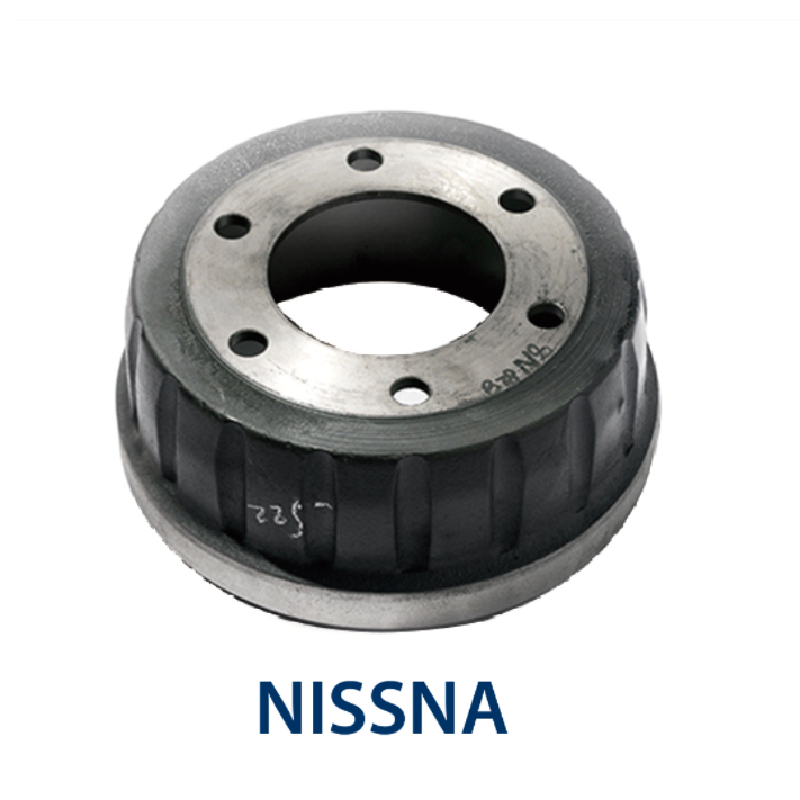Jul . 27, 2024 03:16 Back to list
Can Rear Brake Drums Contribute to Vehicle Vibration Issues and Driving Instability Problems?
Can Rear Brake Drums Cause Vibration?
Brake systems are critical for vehicle safety, and any issues with them can lead to significant performance problems. When it comes to braking, most people are familiar with disc brakes. However, rear drum brakes are still widely used in many vehicles, especially in trucks and some older cars. While they can be effective for stopping power, they may also be the source of vibration issues that can impact the overall driving experience. This article explores how rear brake drums can cause vibrations and what can be done to address this problem.
Understanding Brake Drums
Brake drums work in conjunction with brake shoes to slow down or stop a vehicle. When the brake pedal is pressed, hydraulic pressure causes the brake shoes to expand against the inner surface of the drum. This friction slows the wheel, allowing the vehicle to decelerate. However, the performance of brake drums can deteriorate over time due to wear and tear, which can lead to vibrations felt throughout the vehicle.
Causes of Vibration in Brake Drums
1. Warped Drum One of the primary causes of vibration in rear brake drums is warping. This can occur due to excessive heat generated during braking, which can cause the metal to deform. A warped drum will not provide a smooth surface for the brake shoes to contact, leading to uneven braking pressure and consequently, vibrations.
2. Out-of-round Drums Similar to warping, brake drums can become out-of-round with use. This means that instead of being a perfect circle, sections of the drum may be slightly larger or smaller. As the brake shoes engage the irregular surface, they can create a pulsating effect, which is felt as vibrations in the vehicle.
3. Improper Installation If the brake drums are not installed correctly, it can cause misalignment. This improper setup may lead to uneven wear and vibration during braking. It is essential to ensure that the drums are mounted securely and that all components are in their proper positions.
can rear brake drums cause vibration

4. Worn Brake Shoes As brake shoes wear down, they may not maintain consistent contact with the drum surface. If the shoes are unevenly worn or have a build-up of debris or contaminants, this can create an inconsistent braking experience, leading to vibrations.
5. Loose Hardware Over time, the components of the brake system can become loose. Loose bolts, clips, or spring mechanisms can cause the brake drum to vibrate when engaged. Regular inspections can help detect these issues before they cause significant problems.
Addressing the Vibration
To resolve vibrations caused by rear brake drums, one should start with a thorough inspection of the braking system. This includes checking for any visual signs of wear or damage to the drums and shoes. If warping or an out-of-round condition is detected, the drums may need to be either resurfaced or replaced.
Additionally, ensuring that all hardware is tight and functioning properly can prevent vibrations related to loose components. It’s also important to replace worn brake shoes to ensure they make even contact with the drums.
Finally, employing a professional mechanic for routine brake inspections can help catch potential issues before they escalate, ensuring that the brake system remains safe and efficient.
Conclusion
Vibrations caused by rear brake drums can be uncomfortable and may impair the safety of the vehicle. Understanding the various causes of brake drum vibrations and addressing them promptly through regular maintenance can enhance the driving experience and ensure the vehicle operates safely. Keeping up with brake maintenance is crucial for any vehicle owner, allowing for a smoother and safer ride.
-
Brake Drum Man - High-Quality Drum Brake Drums & Brake Shoes for Reliable Performance
NewsJun.24,2025
-
High-Quality Brake Drum Kamaz – Durable Drum Brake Drum & Brake Shoe Replacement
NewsJun.10,2025
-
High-Quality Brake Drum Liza for Drum Brake Systems - Superior Durability and Performance
NewsJun.10,2025
-
High-Quality Brake Drum Kamaz – Durable Drum Brake Drum & Brake Shoe Solutions
NewsJun.10,2025
-
Durable Kamaz Brake Drums High-Performance Truck Parts
NewsJun.09,2025
-
Premium Brake Drum Maz Kit with Shoes Enhanced Braking
NewsJun.09,2025
